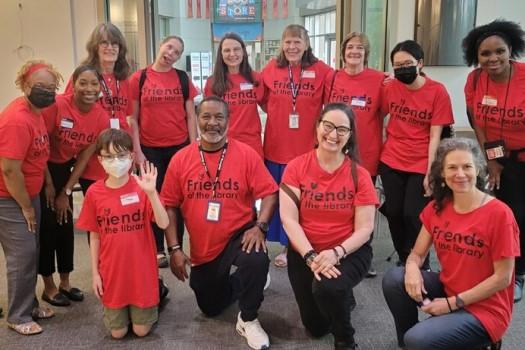
“Striking sanitation workers protest against strike breakers.” Volunteer Voices: The Growth of Democracy in Tennessee. Original Image: Special Collections Dept., University Libraries, University of Memphis.
March 15, 1968
Yesterday, civil rights leaders Bayard Rustin and Roy Wilkins addressed a crowd of close to 10,000 at Mason Temple. Rustin is best known as one of two principal organizers of the March on Washington for Jobs and Freedom where Dr. King gave his ‘I have a dream’ speech, while Wilkins currently serves as executive director of the NAACP, the National Association for the Advancement of Colored People.
The two speeches represent the first significant outside involvement in the over month long sanitation workers strike.
They also represent the first time that significant national attention has been directed at Memphis and the issues involved in the strike.
Mr. Rustin in particular often alluded to poverty as the key issue in his speech saying that, “If I were the mayor of this city, I would be ashamed. I wouldn’t want these men to not be able to feed their families on the lousy pittance they are paid.” Even before the strike began, roughly 40% of sanitation workers were on some form of welfare.
The event served as an opportunity to fund-raise in support of the families of striking workers, many of whom are in desperate straits having not had a paycheck since Feb 20. Strike supporters passed large metal trash cans around the room in lieu of collection plates.
In making the announcement for the event, Rev. James Lawson, a key leader of a group of local ministers supporting the strike, made clear that this is just a first step in a larger effort to bring in outside help. He characterized both Rustin and Wilkins as the “first in a whole series of people coming from all over the country to help.” Recently, local support for the strike has been seen as flagging by many throughout the city.
Not surprisingly, the participation of nationally prominent civil rights leaders in the strike has been greeted with suspicion by a portion of the Memphis white community, who see any outside involvement as that of outside agitators.
Alley, Cal, 1915-1970, “No! No more ‘Salesmen’”, I Am A Man, Wayne State University Libaries.
Kellett, Robert. “Wilkins, Rustin Praise Negro Unity in Memphis.” Commercial Appeal (Memphis, TN), Mar. 15, 1968.
Sweat, Joseph. “Roy Wilkins, Bayard Rustin Due Here to Support Strike.” Commercial Appeal (Memphis, TN), Mar. 13, 1968.
Unknown. “Roy Wilkins is Coming to Memphis Thursday.” Tri-State Defender (Memphis, TN), Mar. 16, 1968.
Unknown. “Strike Backers Await Visit of NAACP Leader.” Memphis Press-Scimitar (Memphis, TN), Mar. 14, 1968.
Beifuss, Joan Turner. At The River I Stand. 2nd ed. Memphis: St. Luke’s Press, 1990.
D’Emilio, John. Lost Prophet: The Life and Times of Bayard Rustin. New York: Free Press, 2003.
Ryan, Yvonne. Roy Wilkins: The Quiet Revolutionary and the NAACP. Lexington: The University Press of Kentucky, 2014.






